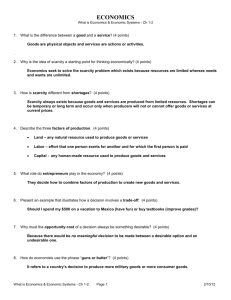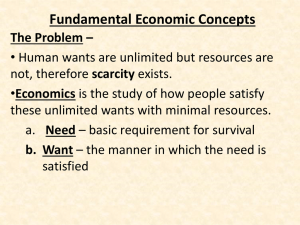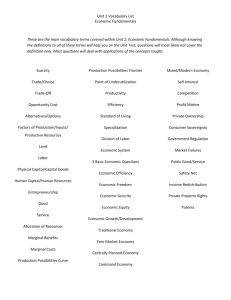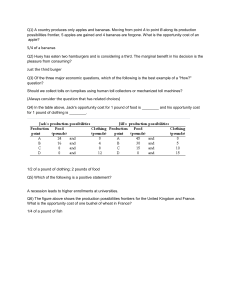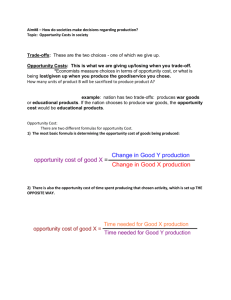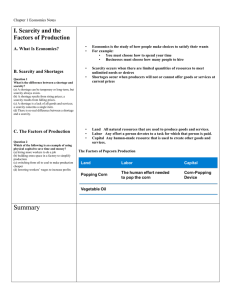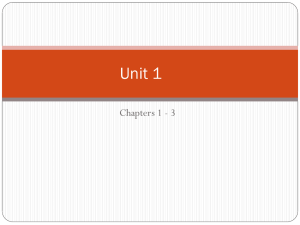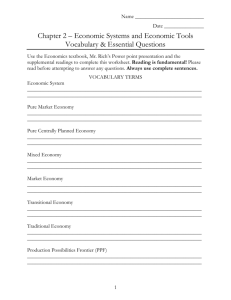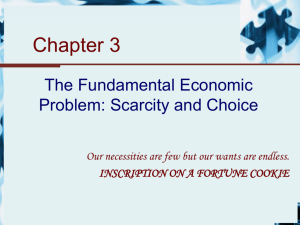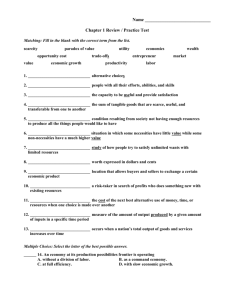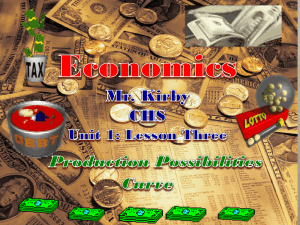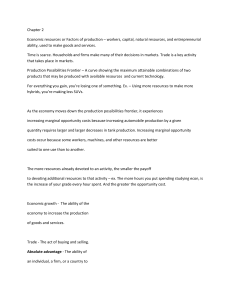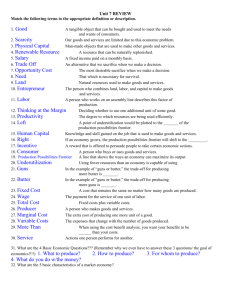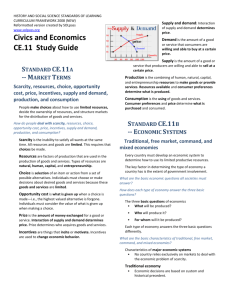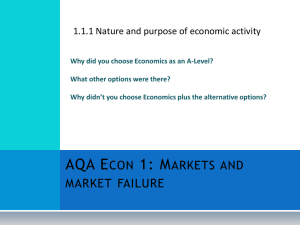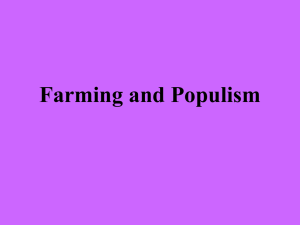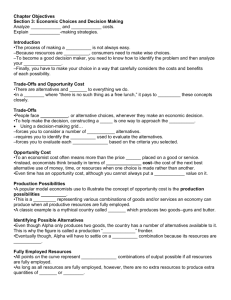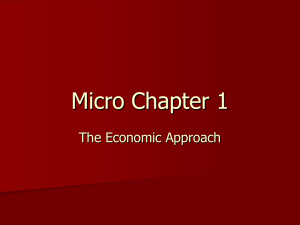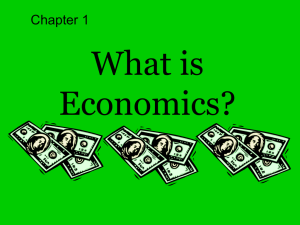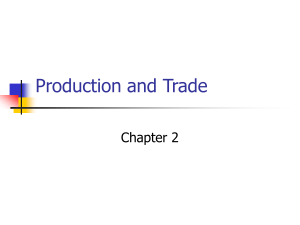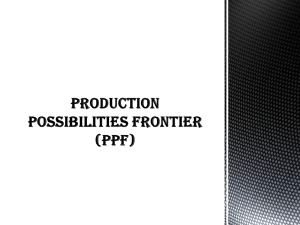1. What are the six core principles of economic reasoning?
advertisement
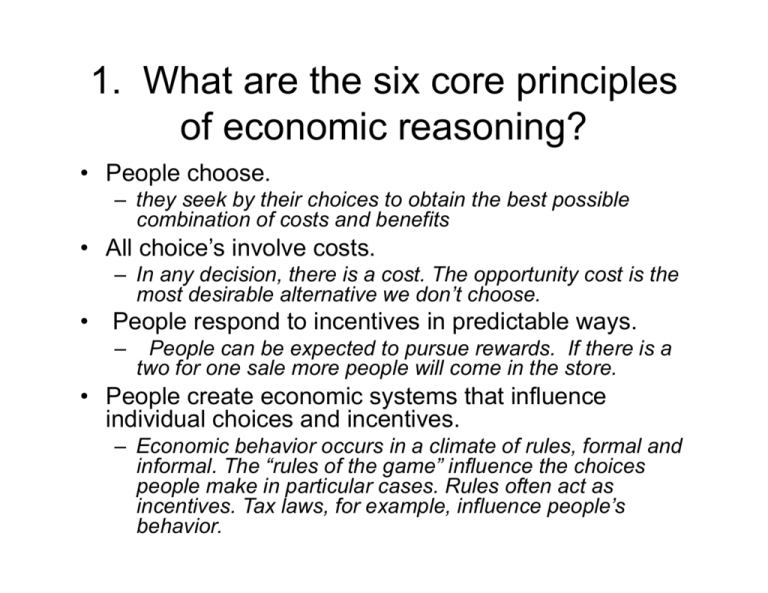
1. What are the six core principles of economic reasoning? • People choose. – they seek by their choices to obtain the best possible combination of costs and benefits • All choice’s involve costs. – In any decision, there is a cost. The opportunity cost is the most desirable alternative we don’t choose. • People respond to incentives in predictable ways. – People can be expected to pursue rewards. If there is a two for one sale more people will come in the store. • People create economic systems that influence individual choices and incentives. – Economic behavior occurs in a climate of rules, formal and informal. The “rules of the game” influence the choices people make in particular cases. Rules often act as incentives. Tax laws, for example, influence people’s behavior. • People gain when they trade voluntarily. – Voluntary trade is when people exchange something they value less for something they value more. We exchange money for concert tickets. The chance to see a movie is worth more than the $7.oo dollars for the ticket. • People’s choices have consequences that lie in the future. – People make choices based upon the longterm benefits. For example a home owner will take better care of their house than an apartment because they have no long-term interest in the market value of that apartment. 2. What are the factors of production? • The factors of production are land, labor and capital. Land is all of the natural resources used to produce goods. Labor is the effort that person devotes to a task for which they are paid. Capital is either human capital, which is the investment in experience training and education that a person brings to a task. Or physical capital, which is the human made goods, used to produce other goods and services. 3. Why does scarcity exist? • Scarcity exists because of the disparity between desires and resources. We have unlimited wants and needs and a limited amount of resources. This leads to choices, tradeoffs and opportunity costs. 4. Why do we always have to give up something to get something else? • Choices have to be made. There is a limited amount of resources. Economists see all costs as opportunity cost because tradeoffs have to be made. Every choice includes the most desirable option that wasn’t chosen. 5. How should resources be allocated • Resources should be allocated to gain the greatest benefits compared to costs. An economy should consider what is to be produced, how it is to produced and who will benefit. Also, resources should be allocated as to achieve the greatest efficiency so that all resources are being used. 6. How do production possibilities reflect opportunity costs?. • The production possibilities curve shows efficiency when all values are along the production possibilities frontier. These alternatives show what is produced and what is not produced (opportunity cost). Growth is shown by a shift to the right of the entire frontier, decrease is shown as a shift to the left and underutilization is shown by a point inside of the frontier. 7. Who makes the economic decisions? • Command Economy: Government based upon national political, economic goals • Market Economy: Markets send messages about price and production • Mixed (Modern) Economy: Markets decide some things, governments decide others • Traditional Economy: Tradition and practice
